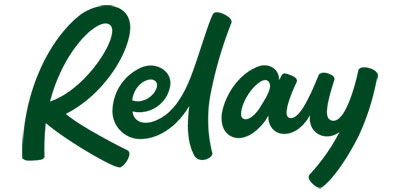Startups need more than just a place to store cash. The right bank makes it easier to manage expenses, accept payments, and access funding—without hidden fees or rigid requirements.
Whether you’re launching a side hustle, securing venture capital, or scaling an e-commerce brand, choosing a bank that fits your needs can save you time and money. Some banks offer fast digital transactions, while others provide in-person service or higher FDIC insurance limits for large cash reserves.
All banks on this list are FDIC-insured up to $250,000 per depositor, ensuring your money is protected. However, if your business holds significant cash reserves, it’s smart to spread funds across multiple banks to reduce risk.
12 Best Banks for Startups
Here’s a look at the best banks for startups and what makes them stand out.
1. Best for Online Sellers: Novo
Novo is a fintech banking platform built for startups that rely on fast, digital transactions. It offers a fee-free business checking account with seamless integrations for Stripe, Shopify, PayPal, QuickBooks, and other essential business tools.
2. Best for Venture-Backed Startups: Brex
Brex is a business banking platform built for startups, especially those backed by venture capital. It provides corporate credit cards, business accounts, and financial management tools designed to help high-growth companies scale.
3. Best for SBA Loans: U.S. Bank
U.S. Bank is a traditional financial institution that offers a range of business banking services, including checking and savings accounts, credit cards, and lending options.
4. Best for Freelancers and Self-Employed Professionals: Found
Found is a fintech platform designed for freelancers, independent contractors, and small business owners who need an all-in-one financial management solution.
5. Best for Startups With Large Cash Reserves: Mercury
Mercury is an online banking platform built for tech startups, venture-backed businesses, and companies managing large cash reserves.
6. Best for Managing Multiple Accounts: Relay
Relay is an online banking platform designed for startups and small businesses that need better control over their finances.
7. Best for Earning Interest on Checking: Bluevine
Bluevine offers a high-yield business checking account with features designed for startups and small businesses that want to earn interest on their deposits.
8. Best for Startups That Need Easy Payment Processing: NorthOne
NorthOne is a digital banking platform built for startups, freelancers, and small businesses that need a simple way to manage cash flow and process payments.
9. Best for In-Person Banking: Chase
Chase offers a full-service business banking experience with a nationwide branch and ATM network, making it a great option for startups that want in-person support.
10. Best for Full-Service Business Banking: Bank of America
Bank of America offers a range of business banking solutions designed to support startups and growing companies.
11. Ideal for Freelancers and Solopreneurs: Lili
Lili is an online banking platform designed for freelancers and self-employed professionals who need an all-in-one financial tool.
12. Best for Merchant Services and Business Credit: Wells Fargo
Wells Fargo offers business banking solutions that include checking and savings accounts, credit cards, and financing options.
Additional Banking Options to Consider
While the banks listed earlier offer strong features for startups, there are other options worth considering. If you already have a personal banking relationship or prefer a local institution, these choices may be a good fit.
Traditional Banks
If you already have a personal account with a major bank like Citi, Capital One, or PNC, opening a business account there could be convenient. Many traditional banks offer:
- Bundled personal and business banking perks
- Access to business credit cards and loans
- Branch and ATM networks for cash deposits
However, traditional banks may have higher fees and lower interest rates compared to online banks. If you value in-person service and a long-standing banking relationship, this route may be worth exploring.
Credit Unions
Credit unions are a good alternative for startups that want lower fees and more personalized service. Since they are member-owned, they often:
- Offer lower-cost business checking accounts
- Have flexible lending options for small businesses
- Provide a more community-focused banking experience
The downside is that credit unions typically have fewer branches and online banking features than larger banks. If you prefer a high-touch banking experience and lower costs, a credit union could be a solid option.

How to Choose the Best Bank for Your Startup
Choosing the right bank is about more than just opening an account. The right banking partner can help you manage cash flow, accept payments, and access funding when needed. Before picking a bank, consider these key factors to ensure it aligns with your business needs.
Fees & Minimum Balances
Startups should avoid unnecessary costs, and banking fees can add up fast. Look for accounts with:
- No monthly maintenance fees or an easy way to waive them
- No minimum balance requirements if cash flow fluctuates
- Low or no transaction fees for incoming and outgoing payments
Some banks offer fee-free business checking accounts, while others require a minimum balance to avoid charges. Make sure to read the fine print before committing.
Transaction Limits & Payment Processing
If your business handles frequent transactions, ensure your bank doesn’t impose restrictive limits. Consider:
- ACH and wire transfer limits – Are they high enough for your business needs?
- Credit card processing integration – Does the bank support payment platforms like Stripe or Square?
- Check deposit options – Can you deposit checks easily via mobile banking?
For e-commerce businesses, fast payment processing is key. Some fintech banks offer instant or same-day deposits to keep your cash flow steady.
APY & Interest-Earning Accounts
If your startup keeps large cash reserves, consider a bank that offers interest on checking or savings accounts. Many traditional banks offer little to no interest, while some online banks provide competitive APY rates. Look for:
- High-yield business savings accounts
- Interest-bearing checking accounts (if you keep a high balance)
- Treasury or investment options for extra returns
Holding cash in a high-yield account helps maximize funds while keeping them accessible for expenses.
Online vs. In-Person Banking
Think about how you plan to interact with your bank:
- Online banks work well for tech-savvy startups and those handling digital payments. They often offer better interest rates and lower fees.
- Traditional banks provide branch access, which is useful if you handle cash deposits or prefer in-person service.
If you need both, consider a bank that offers strong online banking features with branch access when needed.
Customer Support & Fraud Protection
Startups can’t afford delays when banking issues arise. A bank with responsive customer support can save time and headaches. Look for:
- 24/7 live support via phone or chat
- Fraud monitoring and alerts to protect against unauthorized transactions
- $0 liability fraud protection for business debit and credit cards
The right bank should help your business run smoothly, not slow it down. Prioritizing security, reliability, and ease of access ensures you have the support you need when it matters most.
How Your Bank Choice Affects Business Loans & Funding
Choosing the right bank doesn’t just impact how you manage money—it can also affect your ability to secure funding. Many startups rely on small business loans, lines of credit, or alternative financing to grow. Here’s how your banking relationship plays a role.
How Banks Evaluate Startups for Loans
Startups don’t have a long financial history, so banks look at several factors when deciding whether to approve a loan:
- Personal Credit Score – Many banks check the founder’s personal credit, especially if the business is new.
- Business Revenue & Cash Flow – Strong, consistent income makes approval easier.
- Time in Business – Banks often prefer businesses that have been operating for at least two years.
- Collateral – Some loans require assets (such as equipment or accounts receivable) as security.
- Business Plan – Lenders want to see a clear plan for profitability.
Startups that don’t meet these criteria may need to explore alternative funding sources.
Why an Existing Banking Relationship Helps With Business Credit
A strong banking relationship can work in your favor when applying for financing. If you have a business checking account with steady deposits, banks may be more willing to approve a loan or credit line. Benefits of banking where you borrow include:
- Faster loan approvals – Your bank already has insight into your cash flow.
- Better lending terms – Some banks offer lower rates to existing customers.
- Stronger credit profile – Maintaining a positive account history can help when applying for future financing.
Alternative Funding Sources If Your Bank Doesn’t Offer Loans
If your bank doesn’t provide business loans—or if you don’t qualify—other funding options include:
- Online Business Lenders – Platforms like Fundbox and OnDeck offer quick access to capital.
- SBA Loans – Backed by the government, these loans are available through approved lenders.
- Business Credit Cards – A good option for managing short-term expenses.
- Venture Capital & Angel Investors – Ideal for high-growth startups looking for equity funding.
- Crowdfunding & Grants – Some businesses raise capital through platforms like Kickstarter or small business grant programs.
The best funding option depends on your business model, credit history, and cash flow needs. If you plan to seek financing in the future, it’s worth choosing a bank that offers lending options tailored to startups.
How to Open a Business Checking Account
Opening a business checking account is a straightforward process, but being prepared can save you time and hassle. Follow these steps to get your account up and running.
Step 1: Choose the Right Bank
Consider your business needs before selecting a bank. Look for:
- Low or no monthly fees to keep costs down.
- Online and mobile banking features if you prefer digital management.
- Integration with payment processors like Stripe or PayPal if you accept online payments.
- Access to business loans or credit lines if you plan to seek financing.
Once you’ve narrowed down your options, compare the terms and make sure the bank supports your industry and business model.
Step 2: Check the Eligibility Requirements
Different banks have different requirements for opening a business account. Check for:
- Business entity type – Some banks only accept LLCs or corporations, while others allow sole proprietors.
- Minimum deposit – Some banks require an initial deposit to activate the account.
- Industry restrictions – Certain industries, like crypto or high-risk businesses, may have limited banking options.
If you’re unsure whether your business qualifies, check the bank’s website or contact customer service before applying.
Step 3: Gather the Required Documents
Most banks require the following to open a business account:
- Employer Identification Number (EIN) or Social Security number (for sole proprietors).
- Business formation documents, such as articles of incorporation or a business license.
- Government-issued ID for the business owner(s).
- Operating agreement (for LLCs) or corporate bylaws (for corporations).
- Proof of business address, such as a lease or utility bill.
Having these documents ready will speed up the process and prevent delays.
Step 4: Fund Your Account & Set Up Integrations
Once approved, you’ll need to make an initial deposit (if required) to activate the account. Then, set up:
- Direct deposit and automatic transfers to streamline payments.
- Payment processing integrations if you accept online or card payments.
- Accounting software connections (e.g., QuickBooks, Xero) for easy bookkeeping.
Taking the time to configure these settings will help you manage your finances more efficiently from day one.
Final Thoughts
Choosing the right bank for your startup isn’t just about opening an account—it’s about setting your business up for success. The best banking partner will help you manage cash flow, accept payments, and access funding when needed.
Before making a decision, consider factors like fees, transaction limits, interest rates, and banking accessibility. If your startup plans to seek financing, building a relationship with a bank that offers business loans can also be a smart move.
No matter what stage your business is in, setting up the right financial foundation now will make it easier to scale and adapt as your startup grows.
Frequently Asked Questions
Which bank is best for startups?
The best bank for your startup depends on your business needs. If you need low fees and online banking, fintech options like Novo or Bluevine are great choices. If you prefer a traditional bank with branch access, Chase or U.S. Bank offer business-friendly services. For startups with large cash reserves, Mercury provides higher FDIC insurance limits.
Can I open a business account without an EIN?
Yes, but only if you’re a sole proprietor. Most banks require an Employer Identification Number (EIN) for LLCs, corporations, and partnerships. If you don’t have an EIN, you can apply for one online through the IRS.
Can I get a business account with bad credit?
Yes, most banks do not check personal credit when opening a business checking account. However, if you’re applying for a business loan or credit line, your credit score may be a factor. Fintech banks and credit unions may offer more flexible options if you have bad credit.
Do online banks work for all types of startups?
Online banks are great for e-commerce businesses, freelancers, and service-based startups that don’t handle cash deposits. If your business frequently deals with cash transactions, a traditional bank with physical branches may be a better fit.
















